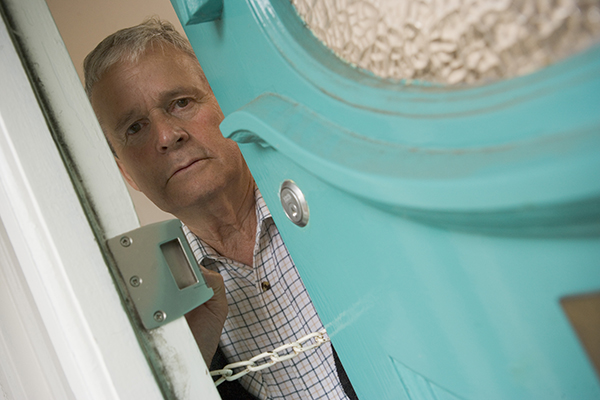Of the numerous impacts of Alzheimer’s disease, one of the most concerning is the individual's tendency for wandering and also the potential dangers which could arise in the event that the senior becomes disoriented or lost. Wandering can take place if the older adult is:
- Scared, confused or overwhelmed
- Trying to find someone or something
- Bored
- Wanting to maintain a familiar former routine (for example, going to work or shopping)
- Taking care of a basic need (such as looking for a drink of water or going to the bathroom)
The goal is twofold; to keep the senior safe and secure, as well as to ensure his or her needs are met to try and stop the desire to wander. Try the following safety measures if your loved one is prone to wander:
- Be certain that the house is equipped with a security system and locks that your senior loved one is unable to master, such as a sliding bolt lock out of his or her range of vision. Many different alarms exist, from something as simple as placing a bell over door knobs, to highly-sensitive pressure mats that will sound an alarm when stepped upon, to GPS products which can be worn, and more. It’s also a great idea to sign up for the Alzheimer Society’s MedicAlert® Safely Home® program.
- Disguise exits by covering doors with curtains, placing non-permanent folding barriers strategically around doorways, or by wallpapering or painting doors to match the surrounding walls. You may also try placing “NO EXIT” signs on doors, which can sometimes deter those who are in the earlier stages of dementia from attempting to exit.
- An additional risk for folks who wander is the risk of falling. Examine each room of the house and tackle any tripping concerns, such as getting rid of throw rugs, extension cords, and any obstructions that may be blocking walkways, adding extra lighting, and placing gates at the top and bottom of stairways.
It is important to remember that with supervision and direction, wandering is not necessarily a challenge. Take a walk with each other outside anytime weather permits and your loved one is in the mood to be mobile, providing the extra advantage of fresh air, exercise, and quality time together.
Although often hard to manage, the dementia care team at Amy’s Helping Hands is specially trained to be equally watchful and proactive in deterring wandering and to employ creative approaches to help seniors with dementia stay relaxed and happy. Email or call us at 519-915-4370 to find out more about our high-quality Essex and Windsor area home care and to schedule an in-home consultation.















